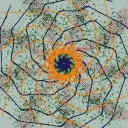Wow, Facebook is lobbying for a law that eliminates their position of monopoly and makes it easier for its users to migrate to other apps. Zuck must be playing some 4D chess.
That, or maybe Facebook has been lobbying AGAINST this law, and your comments in this thread are just fearmongering and conspiracy theories.







What is the ratio of Stanley Nickels to XBucks?